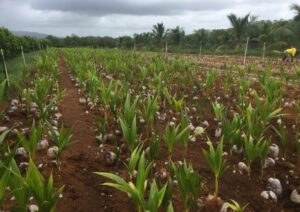As we move towards 2025, Belize is making significant strides in the realm of organic farming in Belize, reflecting a global shift towards sustainable agriculture. With its diverse ecosystems and fertile land, Belize is harnessing the power of organic practices to improve food security, boost local economies, and enhance environmental sustainability and organic farming in Belize.
The Organic Farming Landscape in Belize
Organic farming in Belize is not a new concept; however, it has gained momentum over the past few years. Farmers are increasingly aware of the benefits of utilizing organic methods, not only for personal health but also for the well-being of the community and the environment. The transition from conventional farming to organic practices is encouraged through government initiatives and support from local organizations.
Government Initiatives and Support
The Belizean government has been actively promoting organic farming as part of its broader agricultural policy. The Ministry of Agriculture and Food Security is spearheading efforts to integrate organic practices into the national agenda. Programs aimed at educating farmers about organic methods and offering technical assistance have been launched, successfully increasing interest in sustainable agriculture and organic farming in Belize.
The Role of Local Organizations

Organizations like the Belize Audubon Society and the Belize Organic Producers Association (BOPA) play critical roles in this movement. They provide resources, training, and certification support to local farmers, helping them transition to organic practices and access new markets. These organizations also promote awareness about the benefits of organic farming, enhancing community engagement in sustainable practices.
Challenges and Opportunities
While the rise of organic farming in Belize is promising, it is not without challenges. Limited access to organic inputs, such as fertilizers and seeds, coupled with the need for education and training, presents hurdles for many farmers. However, collaborations with international NGOs and educational institutions are emerging to address these issues, providing valuable resources and guidance.
The Economic Potential
By 2025, the organic market in Belize is expected to expand, driven by both domestic demand and international interest. A growing number of consumers are seeking organic produce, prompting local farmers to adapt their practices. The export of organic products, such as cacao and spices, is gaining traction, offering economic benefits to communities across the country.
Environmental Benefits
The environmental advantages of organic farming are undeniable. It promotes biodiversity, improves soil health, and reduces the carbon footprint associated with conventional agriculture. By embracing organic practices, Belize is positioning itself as a leader in sustainable agricultural practices in the region, ultimately contributing to climate resilience.

Conclusion
As Belize navigates its path towards 2025, the rise of organic farming in Belize stands as a beacon of hope for sustainable development. With concerted efforts from the government, local organizations, and farmers, Belize is well on its way to cultivating a greener future. The commitment to organic agriculture not only enhances food security but also strengthens communities, boosts the economy, and protects the rich biodiversity that Belize is renowned for.
For more information on organic farming initiatives in Belize, visit The Belize Audubon Society, BOPA, and Ministry of Agriculture and Food Security.




